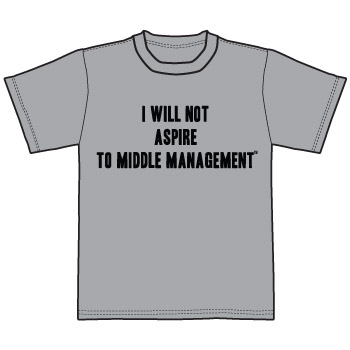The other day, speaking with one of the few personal finance bloggers who doesn’t want to see us drawn, quartered, and fed to narwhals, we got on the topic of public transportation. (Alright, it was her. She’s a sweet gal: don’t hold it against her that she associates with us.) We each concluded that we’d rather crawl wherever we were going until our knees were bloodied and infected than get on a bus.
When you’re 11, riding a bus (solo, anyway) is awesome. You’re away from your parents, and you have the freedom that your 10-year-old sibling who’s stuck riding with mom and dad doesn’t yet enjoy. Sure, where you can travel is still limited (by the bus driver, the connecting routes, their schedules, your curfew), but if you’re plucky enough you could theoretically hop a Greyhound to Belize and start a new life. Even if you don’t, public transportation still beats the hell out of being stuck at home or in the passenger seat of your mom’s Scion.
But you know what happens? Most of us grow up. We want wheels of our own, giving us a new kind of autonomy that that 11-year-old bus rider can barely comprehend. Hopefully, you haven’t forgotten this yourself. Wherever you’re reading this, there’s nothing to stop you from getting in your car at 3 a.m. tomorrow and driving wherever you want to. That’s a liberty that most of us take for granted, so much so that we don’t even bother thinking about exercising it. “Are you crazy? I have to work that morning and I’d be dead tired. Can’t show up at the office groggy. What will people think? Besides, I was out late last night, almost 7 p.m.”
What does this have to do with money? Everything.
Those of us who drive do so because we like self-determination. It’s not that we necessarily like paying $4-something a gallon for gas, sitting in traffic, nor burning fossil fuels and turning the planet into a premature Venus. The last of those is irrelevant, and the first 2 aren’t even up for consideration. A car lets you go wherever you want, whenever you want. For that degree of freedom, $4 a gallon is an unbelievable bargain.
Most of us don’t live in Manhattan (thank God), Tokyo or Singapore. There’s no subway station outside the door. And even if there were, we’d still have to share it with people. You folks who think that riding public transportation is the greatest gift you can give to the planet short of buying carbon credits don’t know what you’re missing.
Did you know you can save $12,000 a year by not owning a car? Gas, insurance, repairs…
So you’re saying that for just $12,000 a year, I can come and go as I please? Have somewhere to store certain stuff as I run errands throughout the day? Keep warm in the winter and cool in the summer? Listen to music I like while going where I’m going, as loud as I want? Go on a roadtrip next weekend? My God, cars are the most amazing deal ever. You just said so.
We’ve progressed pretty far as a species, but the fundamentals of off-roading via public transportation continue to elude us. Buses and subways traditionally steer clear of sand dunes, mountain passes and 4WD roads.
Transporting cargo. You know what you can do in an SUV that you can’t do on a bus? (No, aside from that. Grow up.) Go to the supermarket and buy a week’s worth of groceries, for one thing. How you central business district metropolitans can survive carless, and thus limited to the amount of groceries you can carry in your hands, is beyond us.
The only reason to take the bus is if you don’t value your time. Drive 20 minutes somewhere, or take an hour including multiple transfers to save a portion of that $12,000 a year…it’s up to you. Now if you’re a kid who’s too young to drive, your time is pretty worthless anyway. You still have decades ahead of you, which you can squander first by going to college, then by paying off student loans. Besides, if you’re under 16 you have no choice in the matter anyway.
Those of with places to go and people to see – you know, adult interests – realize there’s only an ever-diminishing finite time in which to get things done. Knowing that, why on Earth wouldn’t you do so as efficiently and quickly as possible?
An advanced city is not a place where the poor move about in cars, rather it’s where even the rich use public transportation.
– Enrique Peñalosa, former mayor of Bogota
The best part about pithy quotes? You don’t have to elaborate on them! Like the ones attributed to Einstein (World War IV will be fought with sticks and stones, if bees die out humans will follow them within 4 years, etc.) While losing nothing in the translation, the above Twitter-friendly sentence (8000 or something retweets) is simultaneously provocative, unexpected, and devoid of sense. Rich people don’t sacrifice autonomy and self-determination, neither to have a boss push them around nor to wait for a bus. That’s what makes them rich.
The next time an idealistic idiot tells you that driving cars is a social ill, run him over. Driving and maintaining a car says that your time is yours to cherish and make the best use out of. Taking the bus says you’re poor, a manipulable automaton, or both.





